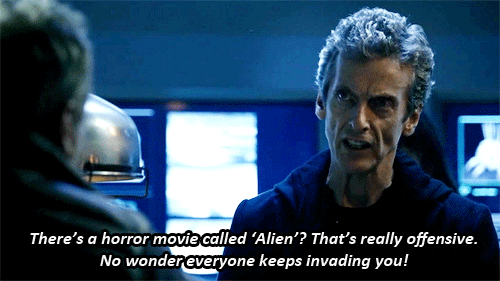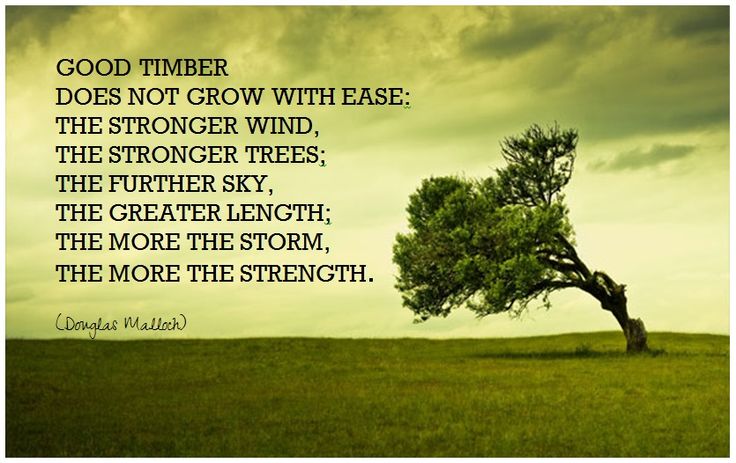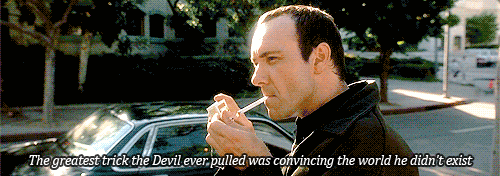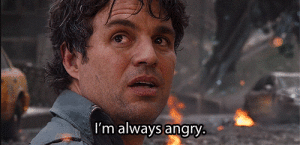This post is part of the General Conference Odyssey series.
Until last week, I had never heard of Dietrich von Hildebrand. Then my father told me that it was important for me to read one of this books, The Heart
, and lent me the copy that had been traveling back and forth between his study and my mother’s.
Von Hildebrand was a Roman Catholic philosopher and theologian who live in Germany until his outspoken criticism of Adolf Hitler meant he had to flee to Austria. He fled to France next, after Hitler annexed Austria, and then from France to the US (by way of Brazil) after the Germans invaded France as well. Pope Benedict respected him so much that he said “When the intellectual history of the Catholic Church in the twentieth century is written, the name of Dietrich von Hildebrand will be most prominent among the figures of our time.”
In The Heart, Hildebrand argues that the heart (by which he means the metaphorical heart, the “affective sphere” or, more simply, our emotions) has been “under a cloud throughout the entire course of the history of philosophy.” Going back to the ancient Greeks, the emphasis has always been on rationality, with reason regarded as a weakness or a defect. Hildebrand argues that—while of course emotions are susceptible to error—that the heart is an equally important aspect of our human experience.
In particular, Hildebrand separates different kinds of feelings. On one end of the scale, you’ve got raw biological facts: things like hunger or exhaustion which we call “feelings.” On the other end of the scale, you’ve got the reaction we feel to exquisite music, or to stories of great moral courage and sacrifice, which we also call “feelings.” Using the same word to describe such disparate events, is, according to Hildebrand’s argument, a major reason that we don’t take the heart as seriously as we should.
For Hildebrand, the heart is capable of great nobility when it unites intellect and emotion in a response to truth and beauty. So much so, that loving the good is superior to merely knowing or recognizing the good. As he writes:
The transcendence proper to the value-response reaches even further than in knowledge. The fact that our heart conforms to the value, that the important in itself is able to move us, brings about a union with the object which goes even further than in knowledge. For in love the totality of the person is drawn more thoroughly into the union established with the object then in knowledge. We must not forget, moreover, that the type of the union proper to knowledge is necessarily incorporated in love.
This echoes something that Anglican bishop and scholar N. T. Wright wrote in Surprised by Scripture:
Just because it takes agape to believe the Resurrection, that doesn’t mean all that happened was that Peter and the others felt their hearts strangely warmed. Precisely because it is the love we are talking about, not lust, it must have a correlative reality in the world outside the lover. Love is the deepest mode of knowing because it is love that while completely engaging with reality other than itself, affirms and celebrates that other-than-self reality.
So, according to both Von Hildebrand and Wright, love surpasses knowledge, for one. And, as a corollary, affective (i.e. emotional) responses can be full of nobility. Quoting Hildebrand one more time:
To be moved by some sublime beauty in nature or in art or by some moral virtue, such as humility or charity, is to allow ourselves to be penetrated by the inner light of these values and to open ourselves to their message from above. It is a surrender which implies a reverence, humility, and tenderness.
Why am I sharing all of this with you? Simple: this is what I had in mind as I found myself crying while I read the last talk from the Tuesday Morning session of the April 1971 General Conference. That talk in question is Lost Battalions. The title is fairly familiar, but I’m pretty sure that’s because I have read about the Lost Battalion in question. The talk, as far as I can tell, was completely unknown to me before I read it last week as part of the General Conference Odyssey.[ref]Which, in a nutshell, is why we’re doing the General Conference Odyssey.[/ref]
Now, I’ll have a hard time quoting you my favorite passages because after a while I gave up highlighting the talk on LDS.org. It just looked like a wall of yellow. For that, y’all will just have to go read it yourselves. [ref]Really, it’s worth your time.[/ref] Instead of specifics, I want to talk about the overall arc of the piece.
I wondered, at the outset of the piece, about the juxtaposition of the story of the Lost Battalion with the Christ’s message of love. Juxtaposing a story of military heroism with Christ’s message of love in the Gospel of John was, to put it mildly, arresting. If your model of Christlike love is fighting in combat, then you’re going to be raising some fairly difficult questions.
But it was I who was missing the point, because instead of treating the story of the Lost Battalion as the pinnacle of the story—the example to which we strive—instead the talk turned immediately from the literal Lost Battalion of World War I to the lost battalions all around us. First: the “lost battalions” of “the handicapped, even the lame, the speechless, and the sightless.” Next came more “lost battalions”: the elderly, the sick, and broken and estranged families.
In these cases there was a stark challenge, and it was one perfectly tailored to a nation steeped in a tradition of deference of military heroism: if you admire the heroism of World War I stories, then be a hero by donating your time to help the people who need you in your own neighborhood. Go read to the blind. Go give food to the hungry. Quench your anger and reach out in love to your family. The conventional narrative of militaristic self-sacrifice was slowly being co-opted into a message of practical, mundane, every-day service.
These passages were beautiful, both the prose and the stories, but it didn’t stop there. The biggest “lost battalion” is all of us. All of us who “struggle in the jungles of sin” or “wander in the wilderness of ignorance.”
In reality, each one of us is numbered in what could well have been the lost battalion of mankind, even a battalion doomed to everlasting death.
But our battalion isn’t lost. It’s already been saved. The talk cites the angel’s words to the women at Christ’s empty tomb, “Why seek ye the living among the dead?” and then concludes:
With this pronouncement, the “lost battalion” of mankind—those who have lived and died, those who now live and one day will die, and those yet to be born and yet to die—this battalion of humanity lost had just been rescued.
I’d had misgivings at the outset about using a war story as the model for Christ-like love, but by the end I realized I had it all backwards. The real war—and the real war story—is the Gospel. The true struggle is the spiritual one, and the one true hero is Jesus Christ.
I haven’t mentioned the author yet. That’s because I read the talk without checking the author first. And so at the end I scrolled back to the top. It makes sense now—given the preponderance of stories and the overall style—but I was surprised when I read the name of Thomas S. Monson. My favorite talk of the odyssey thus far was given by the man who is currently the President of the Church of Jesus Christ of Latter-day Saints.
Now, here are a couple of snippets from other talks that I particularly liked.
“The Spirit Beareth Record” (Elder Boyd K. Packer)
There are those who hear testimonies borne in the Church, by those in high station and by members in the wards and branches, all using the same words—“I know that God lives; I know that Jesus is the Christ,” and come to question, “Why cannot it be said in plainer words? Why aren’t they more explicit and more descriptive? Cannot the apostles say more?”
How like the sacred experience in the temple becomes our personal testimony. It is sacred, and when we are wont to put it into words, we say it in the same way—all using the same words. The apostles declare it in the same phrases with the little Primary or Sunday School youngster. “I know that God lives and I know that Jesus is the Christ….
To one who is honestly seeking, the testimony borne in these simple phrases is enough, for it is the spirit that beareth record, not the words.
I had this very much in mind today as I listened to the testimonies in my ward. Men and women, old and young, stood and bore their testimonies, saying at the conclusion of each: “I know that Jesus is the Christ”[ref]Or very similar words.[/ref]
And I was struck by Elder Packer’s observation, that both the General Authorities of the Church and the kids in primary express their testimonies in the same way. It’s kind of beautiful, if you think about it, and I definitely kept Elder Packer’s warning in mind: “We would do well not to disregard the testimonies of the prophets or of the children.”
Practicing What We Preach – Elder Marion D. Hanks
I was struck by a story Elder Hanks told about his sister’s family holding family home evening in the hospital, around his gravely ill sister’s bed:
Her husband and family were surrounding her bed, holding their family home evening, led by their fourth missionary son just returned from foreign fields. I joined them, and then went home rejoicing and thanking God for that kind of example, and met my own family who were waiting, and prayed that we might do a better job of practicing what we preach.
I was struck by a General Authority telling a story of a family that, implicitly, was doing things better than his own family. Of a General Authority telling us, over the pulpit, that he looked up to his sister’s family, and wanted to do better a job with his own. It was refreshingly humble, vulnerable, and real.
Marriage Is Intended to Be Forever – Elder James A. Cullimore
I highlighted an awful lot of this talk, but in general two things stood out.
First, I was surprised at how clearly the same points that the Church has brought up in the recent debates over same-sex marriage were clearly articulated back in 1971 when same-sex marriage was the last thing on anyone’s mind. There have been many who believe that the Church’s position is either inertia at best (well, this is how things have always been done) or outright bigotry at worst. But, reading this talk, it’s impossible to ignore the fact that the Church’s emphasis on the role of the family as it was expounded in the recent political debates is exactly the same as what Elder Cullimore was talking about when the biggest perceived threat to marriage was divorce. For example:
Marriage is a sacred relationship entered into primarily for the rearing of a family, in fulfillment of the commandments of the Lord.
And:
President McKay said, in reference to the seriousness with which we enter the marriage contract: “… to look upon marriage as a mere contract that may be entered into at pleasure in response to a romantic whim, or for selfish purposes, and severed at the first difficulty or misunderstanding that may arise, is an evil meriting severe condemnation, especially in cases wherein children are made to suffer because of such separation.”
I don’t expect to change anyone’s mind with these quotes. That’s not my point. My point is simply that the Church’s stance on this issue—whatever you think about it—is pretty clearly based on genuine, sincere, and serious religious commitment rather than ignorance or hate.
The second thing that struck me was the way Mormons insist on having their cake and eating it too when it comes to romantic and pragmatic views of marriage. And I mean this in the best way possible.
The most amazing thing is that, in general, I think we manage it. We have both the romance and the pragmatism. Maybe it’s even because of the pragmatism that we have the romance. A firm foundation provides the basis for trust and vulnerability that allows romance to flourish. And it’s possible that it’s because of the romance that we have the pragmatism. Mormons are willing to make sacrifices and concessions to preserve what we value so highly: marital romance.
One thought along those lines:
I suppose there is no surer need in marriage than constant compromise. It is through compromise that we grow closer to each other. As we acknowledge our own faults and recognize the virtues in the other and make the adjustments, we strengthen our marriage.
I’ll just add my own perception to this: there’s very little that is more toxic to a marriage than an emphasis on fairness, equality, or justice. Now, don’t get me wrong, I’m not saying those things don’t matter. But in a relationship where abuse is not a concern, then emphasizing justice is basically the absolute worst way to handle conflict in your marriage. Justice is about what you deserve. It means that disagreements are seen as conflicts. And justice automatically mitigates against compromise and flexibility. If it would be “fair” for your spouse to do something, then if you give in and your spouse doesn’t do that thing, it’s unfair. You are a victim, your spouse is an aggressor, and there is now a rift between you. The result is either bitterness or recrimination. The best way forward—and again, I’m talking about marital problems in a relationship without abuse—is to abandon fairness as a concept. Instead, trust your spouse. Focus on making them happy and forgetting anything that bothers you. More than anything else: trust your spouse. You married them for a reason. Your love your spouse. Your spouse loves you. Chances are, anything you could complain to your spouse about, he or she already knows and is already working on. Give him or her a chance to do that without pressure or a sense of obligation. (And definitely without a sense of guilt! Leave justice out of it.) And then concentrate on doing the same yourself: you already know what you need to work on. So work on it.
Two people who are both trying to improve for eachother and both trying to give the other slack are two people who are going to be happy and in love and at peace a long, long time before either one of them is anything that looks like perfect. But two people who are constantly evaluating the other’s actions and behavior against an “objective” standard[ref]No such thing exists in a marriage anyway.[/ref] are going to find that even if they were on the very threshold of perfection there would still be conflict, strife, and hostility.
—
These are the other posts from the General Conference Odyssey this week.
- The Secret Life of Mormons (G at Junior Ganymede)
- LDS Conference April 1971 – Profound Spiritual Experiences in an Elevator (J. Max Wilson at Sixteen Small Stones)
- “I Have that Witness” (Daniel Ortner at Symphony of Dissent)
- Knowledge–On Whose Terms? (Ralph Hancock at The Soul and The City)
- Gap Insurance (Michelle Linford at Mormon Woman)
- Escaping “The Box” Through Families (Walker Wright at Difficult Run)
- The Spirit Beareth Record (Chastity Wilson at Comfortably Anachronistic)



























